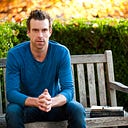The Single Most Important Lesson We Can Learn From the Best Chefs in the World.
Over the last six months I’ve had the incredible opportunity of interviewing the best chefs in the world, in hopes of better understanding how they’ve become so incredibly successful in their careers as chefs, restaurateurs and more importantly, as people. I interviewed the legendary Jeremiah Tower who is largely responsible for the farm to table movement in the United States — he also created the first “open kitchen”. I interviewed Dominique Crenn, the first female chef in the United States to earn two Michelin stars — she was also recently named the “Best Female Chef in the World”. I interviewed James Beard Award winners Gavin Kaysen, Frank Stitt, and Andrea Reusing (so was Tower). I interviewed Philip Tessier who in 2015 competed in the Bocuse d’Or competition that’s held every two years in Lyon, France and he did something no other American has ever done — he earned a spot on the podium, a second place finish and a place in history. I interviewed Top Chef rockstars Fabio Viviani and Kenny Gilbert, two men who’ve created stellar brands for themselves. I interviewed Duane Keller who’s run multiple kitchens that gross over 10 million dollars a year, cooked for the Queen, presidents and Julia Child’s 90th birthday. I also interviewed Richard Corraine, Danny Meyer’s business partner at Union Square Hospitality Group. And finally, I interviewed Brandon Chrostowski who was recently named a CNN hero for his work at Edwin’s restaurant, where he offers convicted felons and home-bound prisoners a second chance at life, by providing them with skills and tools that lead to future success as kitchen leaders. It’s more than a restaurant, it’s an institute and a movement.
After dozens of hours of interviewing these incredibly talented and successful individuals, I began diving into these conversations to extract the important pieces, knowing I would find common threads they all have in common. The ideas, their stories and the lessons they share are the contents of the book — they range from creating a compelling vision for your life, to understanding the power of a decision, to working harder than anyone else to achieve your goals, to learning to adapt and pivot in your life and career when things don’t go as planned. These are a few of the lessons I share through the powerful stories I was able to extract from these chefs, however, the most powerful lesson of all, far and away, something that dominated our conversations and if I were to go out on a limb, would say that this very topic is the front-runner for my next book —it’s the power of relationships.
As chefs (or insert your career), we have the opportunity to connect with people every day, through our food and our art and through experiences at our restaurants. We get to make people laugh, smile and sometimes cry, when appropriate, as guests enjoy a meal that we’ve carefully crafted for them. Perhaps we remind them of a childhood memory. Maybe it’s offering them a place to reunite with a long lost loved one, or perhaps it’s guests excitedly choosing to join us for the night to celebrate an anniversary or a birthday. Regardless of the circumstances, we have the opportunity to connect with people through our food, while also giving them the space to connect with each other through it, at the table, while enjoying each other’s company.
(If this article resonates with you, I hope you’ll share it and recommend it by tapping the Green heart)
While the end product is the interaction our guests have with a meal and an experience we’ve created for them, none of that matters if we don’t first create and cultivate powerful relationships within our organizations that allow for those types of situations to exist. Chefs, for the longest time, have been viewed as dictators of the kitchen, wielding the my way or the highway mentality, however, slowly and surely the conversation is starting to change, in large part because of the influence these and other great chefs have had on their organizations by creating a culture that great cooks, as well as those with potential, want to be a part of.
Chefs need to be leaders. Leader doesn’t mean boss. Leader means I’m here to mentor you and put you in the best position to succeed.
Unlike popular belief, leaders don’t need to have all of the answers and the best way to get things done isn’t by barking orders — in fact, it’s almost the opposite. A leader is willing to put their own well-being behind that of his or her staff, in order to advance the cause (whatever that might be). It’s not just putting the staff first in hopes of getting what they want, but instead, a true leader inherently cares about the people around them and wants to see them succeed. When you show the people around you that you are truly invested in who they are, want to see them succeed and are willing to sacrifice your own self-interest, in order to achieve that, amazing things happen.
This is where the magic happens. This is where communication becomes second nature, which leads the way to trust — but it doesn’t happen overnight. It’s something that is cultivated every single day.
I saw this time and time again, in every single conversation I had and it gave me goosebumps as the conversations went on, because it’s something that I’ve always fundamentally believed in. I saw Duane Keller exemplify this through the simple act of teaching his Mexican dishwasher how to properly shake hands while making eye contact with the recipient. I heard Jeremiah Tower describe the way he ran his kitchens — he gave his cooks permission to screw up, but also encouraged collaboration and everyone’s participation in contributing to specials and other items that cooks might typically be reluctant to try — with permission to make mistakes (an opportunity to learn and grow), cooks became more willing to take chances, be creative and were able to step out of their comfort zones — one of the keys to creating compelling, interesting cuisine. Frank Stitt discussed his beautiful sixty acre farm in northeast Alabama, where they grow much of the produce that his group of restaurants uses in Birmingham and I could hear him smiling through the phone at the enjoyment he got out of bringing his staff out to the farm to spend an afternoon learning about the various animals and ingredients that would soon be walking through the back doors of their restaurants. A few hours on the farm allows for cooks to better connect with the food in a way that helps them to better appreciate the craft of cooking, and it’s through these experiences that these young cooks understand that Chef Stitt wants them to learn, not just so that his restaurant kitchens can benefit in the short run, but in order to teach them and help them to be better cooks and chefs for themselves and their career. To this day, Stitt and his wife spend the holidays with his former chefs and their wives, reminiscing about the times they spent together learning and growing together — these chefs now all own their own restaurants. When the people that you work with every single day understand that you have their best interest in mind and that you want to see them succeed, whether that’s with you or not, they will go to battle for you — not because they have to — they want to, because they believe in and trust you.
But, how do you get to this place? Sure, in theory, it’s easy to understand how the people around you will perform better, do better, be more creative, and will be more reliable, when they know that you are invested in them, but how do you get here? How do you cultivate this type of behavior within yourself, in order to imbue it into your organization? After all, it all stems from the top. I was talking with Richard Corraine, one of Danny Meyer’s partners at Union Square Hospitality Group, the best example of a strong-cultured hospitality group in the country, and I asked him,
What is the number one quality or trait you look for when hiring?
Corraine answered without flinching,
Empathy. It’s so embedded in our culture and it’s what drives our decisions — it’s that ability to see someone else’s point of view. Maybe it’s a customer’s or a vendor’s, or perhaps an employee is running late for work and is clearly stressed out. The natural inclination in our industry is to pull them into the office and write them up for being tardy, but what if instead, we took the approach of asking them if they are okay? What if we attempted to understand the situation they are in and why they are late? Maybe they need for you to see them as a person and not just an employee. We look for this in everyone we hire and it’s something that Danny preaches about constantly. It’s at the core of everything we do.
A good leader is without a doubt able to empathize with the people around them — what did I wish I knew when I was their age? How would I have wanted to be treated when I was coming up through the ranks? How would I have felt safer at work? These are the types of questions we need to ask ourselves as leaders and these are the types of questions that are far more important than “did you clean the walk-in” or “why are you late”, because if you first empathize and ask those earlier questions from a sincere place — the walk-in will be cleaned and if someone is late, you can trust that it’s for good reasons. Maybe not always, but often enough.
You see, if you have their back, they’ll have yours.
As my good friend Adam Lamb says,
All we want is to be seen for who we are and appreciated for who we are. If those were our only two objectives as mentors — the rest would take care of itself — @chefliferadio
At the end of the day, it’s not about the food we make, because that is ever-fleeting — it’s about the impact we have on the people around us. The more we are able to tap into this very human principle, the more enjoyment we will get out of going in to work each day and the more impact we’ll end up having on the people around us. Then, when it’s time to hand the reigns off to them and the rest of the upcoming generation, they will imbue these same ideals into the people that work with and for them. That’s how we make change happen — one person at a time… one restaurant at a time…
It’s about the people — it always will be. That’s what makes it meaningful, that’s how we make a difference.
— To learn about my Book, click HERE. I would really appreciate your help if you can grab a copy — or at least share this article with your friends. At the bottom of this article is a trailer for the Book.
BUY YOUR COPY HERE of Making The Cut.
Connect on FACEBOOK, TWITTER, INSTAGRAM, MY NEWSLETTER
Add Me on Snapchat: BachelorKitchen

